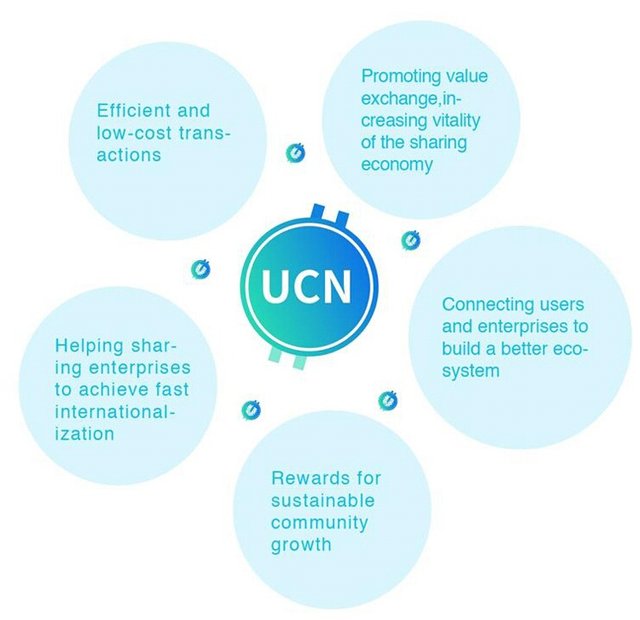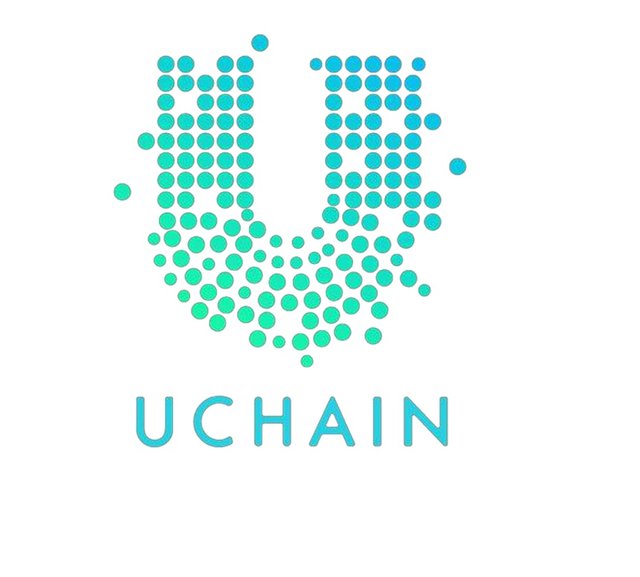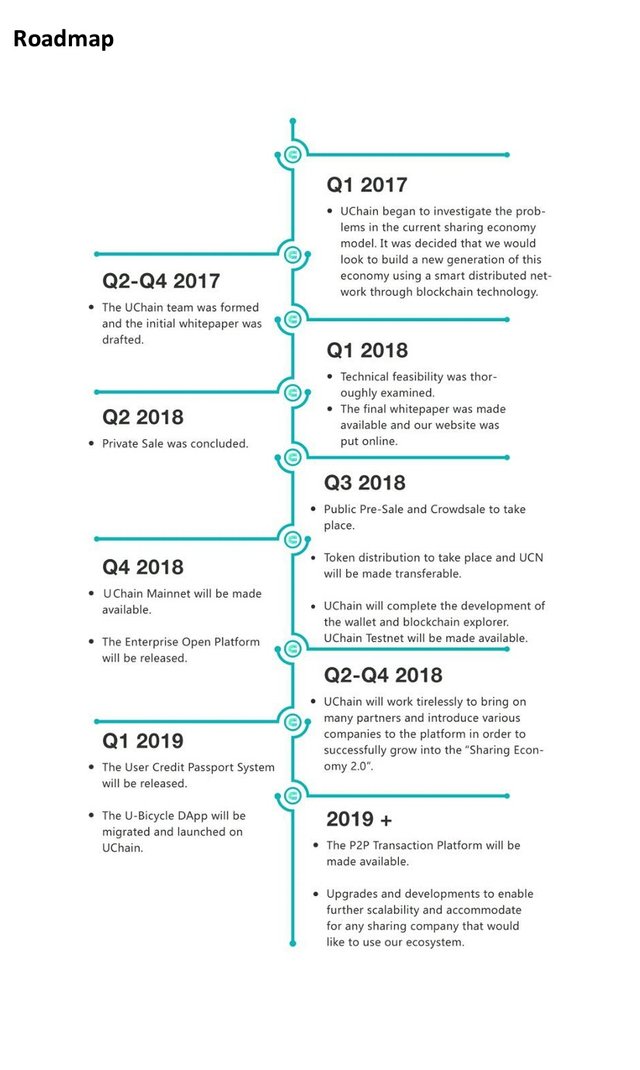COMPREHENSIVE REVIEW OF UCHAIN BLOCKCHAIN PROJECT
Introduction
Asset sharing has been part of human endeavour from the time immemorial, but the internet revolution brought rapid development to it. With advancement in big data,internet has enabled asset owners and those in need of this asset to engage in business transaction. This sort of arrangement is referred to as shared economy or collaborative. Through shared economy, many industry giants have sprung up in the last decade. Think of the likes of Uber in the transportation industry, Airbnb in the hotel sector, medicast in the health sector and many more.
Consequently, the shared economy (also collaborative or peer-to-peer) has witness exponential growth and his presently worth $520 Billion from the initial $186.9 Billion in 2015. However, the ultimate aim of the sharing economy has not been achieved. The goal of sharing economy is to create a platform where users are truly making communication peer-to-peer without any third-party. The present arrangement involves an intermediary (say Uber) which provides the platform and also matchmake assets owners (car owners) and those in need of these asset (travelers).
The presence of intermediaries and in particular their centralised nature has some disadvantages on collaborative economy which are outlined below:
Exorbitant transaction cost
Major stakeholder in the sharing economy usually charges users exorbitant fees for using their platform. For example, Uber charges a commission of 20% and above on every trip by a cab owner. In addition, centralised match making organisations always strive to maximize profit even if it involves deliberately limiting their services to create artificial scarcity.
The problem of trust
In order to facilitate business transaction in sharing economy (between asset providers and asset borrowers), trust is a necessity. Without trust, both parties will be sceptical of the other keeping their end of the bargain. As a result of this, the platform acting as an intermediary between them vouches for both parties to keep to the terms of the contract. In some cases, collateral or deposit are required from the participants before sanctioning transaction thereby increasing cost of participating in sharing economy.
Data leakage and abuse
To access service by companies that engage in sharing economy, users are required to register their details on their platforms. These details include user's personal information which are stored on the company's centralised database. This poses a huge threat to data security in a situation where the company's server is breached leaving tons of users information at the mercy of hackers.
There has been cases of data breach in the shared economy sector in the psst, for instance, in 2016, hackers gained access to over 600 thousand driver's name and their licence number as well as 57 million Uber’s customers personal information globally.
Aside hackers nefarious activities, there have been cases where tech giant sells users personal information for money without respect for their privacy.
It is based on this milieu, that a team of experts with requisite experience in sharing economy and blockchain technology came up with an innovative project to address the challenges in collaborative/sharing economy. The project is tagged UCHAIN
UCHAIN- A decentralized sharing ecosystem
Blockchain technology adoption is expanding gradually bringing the absolute decentralization to all sectors of business globally and is high time that the technology is applied in the sharing economy. Coincidentally, both blockchain technology and sharing economy have a similar goal of creating a truly autonomous peer-to-peer network without the involvement of any third party.
Uchain therefore aim to provide a public infrastructure blockchain network thereby proffering solutions to problems faced by users in patronizing traditional sharing economy organisation. Through the Uchain platform, asset owners and asset borrowers are brought together for transactionary purposes thereby eliminating the role of intermediaries. The platform will facilitate peer-to-peer transaction between participants while services on the Uchain will be paid for using local tokens (UCN).
Furthermore, Uchain solves challenges in the sharing economy sector by:
Reducing Transaction Cost
Intermediaries role in the sharing economy will be totally eliminated there by bringing a reduction in the transaction fee of 20%. Moreover, the currency of the platform is UCN token thereby eliminating transaction charges by banks and other payment platforms during transaction.
Restoring users confidence trust
The transaction activities of the platform is recorded on the blockchain. Information on blockchain are foolproof and cannot be tampered with. Additionally, Uchain has a credit passport mechanism which enables shared service provider to verify users identity and track their behaviour across the platform.
Optimum Security of Users Information
Data theft and misappropriation which are common in traditional shared service provider is eliminated in the Uchain ecosystem by blockchain technology. Valuable information such as identity information, transaction records and reviews are stored on a distributed storage scheme with private key. Before changes can be made on existing information on the Uchain blockchain, users and shared service provider have to login with their private keys and authorise the cjanges.
The Uchain ecosystem
There are two distinct roles in the Uchain ecosystem; users and developers and both play vital roles towards the sustainability of the platform.
Users
Users in the Uchain ecosystem are categorised as service users, independent service providers, and enterprise service providers. Service users on payment of UCN token would have access to all the available shared service decentralized applications on the Uchain ecosystem while independent service users provides their unused assets in exchange for UCN (the platform token). Lastly, the enterprise service provider have their own specialised decentralized application built on the Uchain platform,they earn revenue in UCN based on users acceptance and usage of their DApps.
Independent developers
Uchain is an open source platform which welcome contribution from individual developers or organisations towards development of a robust Uchain infrastructure and decentralized applications. (DApps)
TOKENOMICS
The local tokens of which enable system is using UCN. Holders of UCN will have access to services on the Uchain platform.

STACKED UCN(UCP)
UCN holders also has the option of locking their tokens to get UCP. Holders of UCP has a better leverage on platform, they can participate in voting and also earn revenue on their locked UCN tokens.
The token sale of UCN has been cancelled as all the required capital of 35000 Ethereum has been raised at the private sale phase.
For more information on this project, follow any of these links:
Telegram
Reddit
Twitter
Medium
Bounty http://www.g0blin.com/Uchain


Nice review @seento. How can I invest in this project since there is no plan of holding ico ?
Because I find their project unique with a real use case.